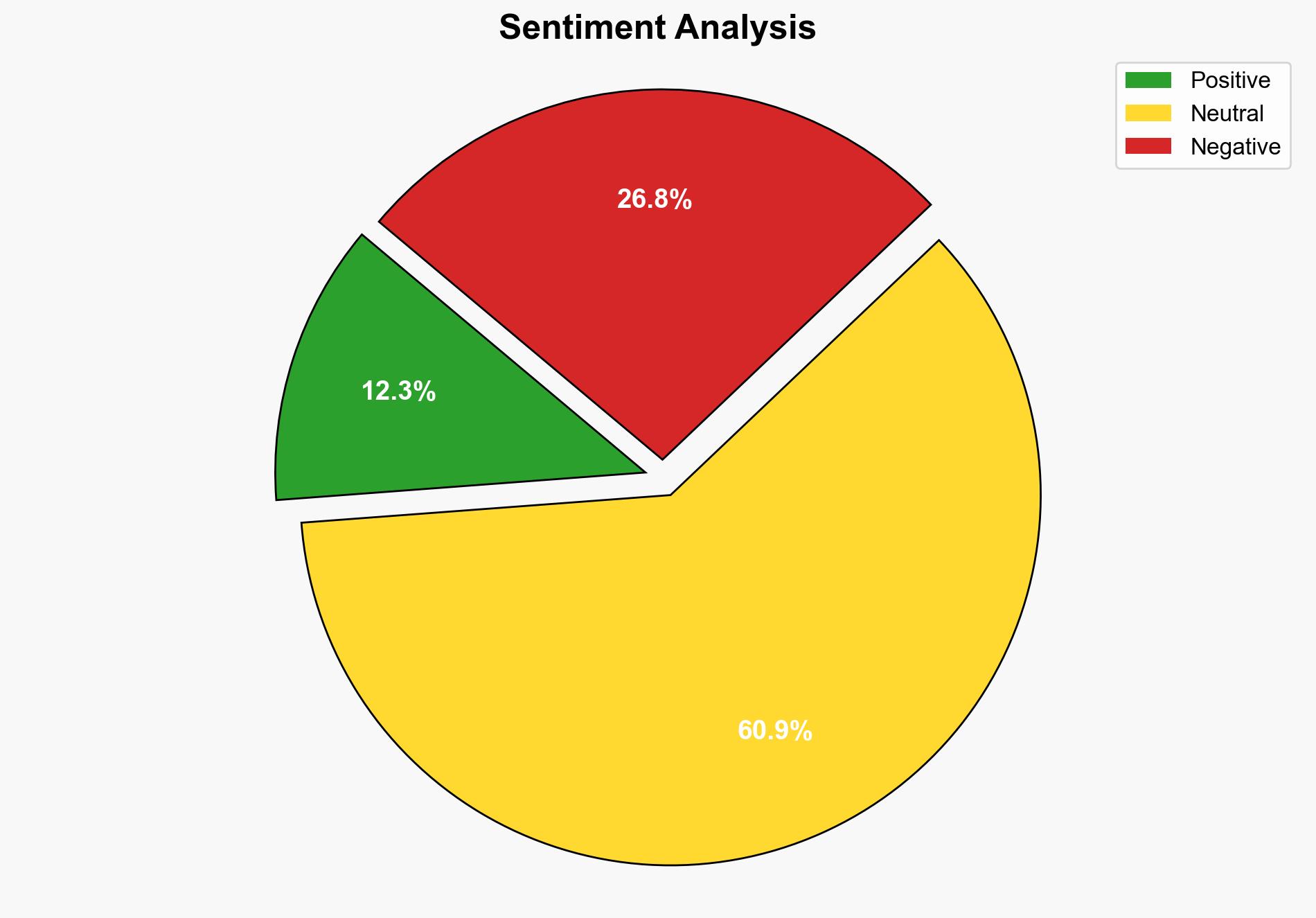Israel vows to strike foes anywhere after Qatar attack – RTE
Published on: 2025-09-10
Intelligence Report: Israel vows to strike foes anywhere after Qatar attack – RTE
1. BLUF (Bottom Line Up Front)
The most supported hypothesis is that Israel’s airstrike in Qatar aims to deter Hamas and signal its willingness to act unilaterally against perceived threats, despite potential diplomatic fallout. Confidence in this assessment is moderate due to the complex geopolitical dynamics and potential for misinformation. Recommended action includes diplomatic engagement to de-escalate tensions and reinforce regional stability.
2. Competing Hypotheses
1. **Deterrence and Demonstration of Capability**: Israel’s strike in Qatar is intended to deter Hamas by demonstrating its capability and willingness to target leaders anywhere, thereby reinforcing its security posture.
2. **Escalation of Regional Tensions**: The strike is part of a broader strategy to escalate tensions in the region, potentially to draw in international actors or shift focus from domestic issues.
Using ACH 2.0, the first hypothesis is better supported by Israel’s historical pattern of targeted strikes and public statements emphasizing deterrence. The second hypothesis is less supported due to the high diplomatic costs and lack of immediate strategic gains.
3. Key Assumptions and Red Flags
– **Assumptions**: It is assumed that Israel’s actions are primarily driven by security concerns rather than political maneuvering. Another assumption is that Hamas remains a central threat to Israeli security.
– **Red Flags**: The lack of corroborating evidence from independent sources about the attack’s specifics raises questions. Potential cognitive bias includes confirmation bias in interpreting Israel’s actions as purely security-driven.
– **Deception Indicators**: Contradictory statements from involved parties, such as differing accounts from the White House and Israeli officials, suggest potential misinformation.
4. Implications and Strategic Risks
– **Geopolitical Risks**: The strike could strain Israel’s relations with Qatar and other Gulf states, complicating diplomatic efforts in the region.
– **Escalation Scenarios**: Potential for retaliatory actions by Hamas or other groups, leading to wider conflict.
– **Economic and Cyber Threats**: Increased regional instability could impact global markets and heighten cyber threats as actors exploit vulnerabilities.
5. Recommendations and Outlook
- Engage in multilateral diplomatic efforts to de-escalate tensions and facilitate dialogue between Israel, Qatar, and other regional actors.
- Enhance intelligence-sharing mechanisms to verify claims and prevent misinformation from exacerbating tensions.
- Scenario Projections:
- **Best Case**: Successful diplomatic intervention leads to a ceasefire and reduced hostilities.
- **Worst Case**: Escalation into a broader regional conflict involving multiple state and non-state actors.
- **Most Likely**: Continued low-intensity conflict with periodic escalations and international diplomatic interventions.
6. Key Individuals and Entities
– Benjamin Netanyahu
– Donald Trump
– Yechiel Leiter
– Khalil al-Hayya
– Sheikh Mohammed bin Zayed al Nahyan
– Crown Prince Hussein
– Mohammed bin Salman
– Ursula von der Leyen
7. Thematic Tags
national security threats, cybersecurity, counter-terrorism, regional focus





